Writing Mechanics: To Paragraph or Not to Paragraph
Today editor Christy Distler continues our look at Fatal Flaw #12: Flawed Writing Mechanics. We’ve looked at how novels are structured like mini novels, and explored sentence structure. Now we’ll take a look at paragraphs to see just what problems they pose to the fiction writer.
Earlier this month, Rachel talked about scene structure, describing how to write scenes as “mini novels.” Today I want to talk about another type of structure in fiction: paragraph structure. We’ve already looked at why white space is important, but to use white space well, we need to understand when to start and end a paragraph.
Here are some basic guidelines for paragraphing (in fiction):
- Begin a new paragraph anytime the speaker changes. By starting a new paragraph, the reader will automatically know a different character is talking.
Example:
“Good morning, Joe,” John said from the next cubicle over.
“Hey, John.” Joe sat down at his desk.
- Keep individual characters’ actions, thoughts, and speech in one paragraph. Character actions, also known as action beats (e.g., “He smiled” or “She crossed her arms”), allow the reader to “see” what’s going on in the scene and also provide a great alternative to repeated dialog tags (e.g., “he said”).
Example:
Jenna grabbed a bottle of orange juice from the refrigerator case and checked her watch as she headed for the register. Late again. She forced a smile at the cashier. “Good morning.”
“How’s it going?” He nodded at her drink. “That all for today?”
- If, for some reason, keeping a character’s actions, thoughts, and speech together results in a very long paragraph, consider shortening the paragraph by either adding another character’s interaction in a new paragraph or breaking the paragraph into two paragraphs at a logical place.
- When conveying action involving more than one character, (in most cases) allow each character his or her own paragraph.
Example:
Colleen started down the aisle of the nearly full bus, glancing over the riders. Jim said he’d save her a seat. Hopefully he had.
Near the back of the bus, a hand went up.
She hurried back and dropped onto the seat next to him. “Thanks.”
- Start a new paragraph with a change in time or place.
Example:
Amanda closed her locker. “I’m going to the library. You coming?”
“I’ll catch up with you there.” Jana said. “I have to stop by Mrs. Patterson’s classroom first.”
Twenty minutes later, Jana finally walked into the library.
Amanda waved her over to where she sat at a computer. “What took you so long?”
She sighed as she pulled a chair over beside her. “Mrs. Patterson could talk the teeth out of a saw.”
- In fiction, as in nonfiction, begin a new paragraph whenever the main idea of the paragraph changes.
- Start a new paragraph to offset a sentence or two for emphasis. Paragraphing so one sentence (or two) stands alone can provide extra punch to the sentence(s) and even the scene. (Just be sure not to overuse standalone sentences because the repetition will diminish the effect.)
With these guidelines in mind, let’s take a look at how both faulty and appropriate paragraphing would affect a scene.
BEFORE:
My chest tightened as Mother and Daddy’s car drove out of the parking lot late that afternoon. My first day at Covington Hall had gone much better than I’d expected, but the reality of my parents going home unsettled me. Strange. How many times over the last few years had I wished they’d give me some space? Now I was getting plenty. Forty-minutes’-drive worth of space to be exact. Daddy always did say to be careful what you wish for. Shoving my hands into my hoodie pockets, I drew a breath and let it out. What now?
“Hey, Cassie!”
I turned to find Ashley and a girl I hadn’t met coming across the parking lot. Connor, Landon, and another guy followed, joking among themselves. Ashley grinned as they neared.
“We’re about to go get dinner. You want to come along?”
Sure. Except that I couldn’t bear the thought of eating the cafeteria food—or in the cafeteria. Let the awkwardness begin.
“Uh . . . I have my own food. It’s in our room.”
Landon held up the insulated lunch bag he carried. “Me too. Allergic to milk, eggs, beef, and chicken.” At least I wasn’t the only one with food issues.
“But I’m not real good with cafeteria smells either.”
Connor shrugged. “No biggie. We eat out on the terrace when the weather’s nice anyway.” Maybe this wouldn’t be so bad after all.
“Sounds good to me.” We started toward the dorms, and Landon stepped into pace beside me. “You have allergies too?”
I forced myself to look at him, and the sincere kindness of his expression eased my apprehension a bit. “Well . . . mine are aversions.”
He nodded. “We’ve got something in common then. My body’s allergic to some foods, and your mind’s allergic to some foods. Right?” Oh, this guy was awesome. I smiled.
“I’ve never heard it put that way before, but yeah, that pretty much covers it.”
I stopped and looked at Ashley as we reached the path to our dorm. “I have to grab my food. You can go ahead and get your dinner. I’ll meet you on the terrace.”
“I try not to go in the cafeteria,” Landon said. “Mind if I walk with you instead?”
Did I mind if the only guy I’d ever met who made me feel remotely comfortable—well, besides Daddy—walked with me? “Nope.” Not a bit.
AFTER:
My chest tightened as Mother and Daddy’s car drove out of the parking lot late that afternoon. My first day at Covington Hall had gone much better than I’d expected, but the reality of my parents going home unsettled me.
Strange. How many times over the last few years had I wished they’d give me some space? Now I was getting plenty. Forty-minutes’-drive worth of space to be exact. Daddy always did say to be careful what you wish for.
Shoving my hands into my hoodie pockets, I drew a breath and let it out. What now?
“Hey, Cassie!”
I turned to find Ashley and a girl I hadn’t met coming across the parking lot. Connor, Landon, and another guy followed, joking among themselves.
Ashley grinned as they neared. “We’re about to go get dinner. You want to come along?”
Sure. Except that I couldn’t bear the thought of eating the cafeteria food—or in the cafeteria. Let the awkwardness begin. “Uh . . . I have my own food. It’s in our room.”
Landon held up the insulated lunch bag he carried. “Me too. Allergic to milk, eggs, beef, and chicken.”
At least I wasn’t the only one with food issues. “But I’m not real good with cafeteria smells either.”
Connor shrugged. “No biggie. We eat out on the terrace when the weather’s nice anyway.”
Maybe this wouldn’t be so bad after all. “Sounds good to me.”
We started toward the dorms, and Landon stepped into pace beside me. “You have allergies too?”
I forced myself to look at him, and the sincere kindness of his expression eased my apprehension a bit. “Well…mine are aversions.”
He nodded. “We’ve got something in common then. My body’s allergic to some foods, and your mind’s allergic to some foods. Right?”
Oh, this guy was awesome. I smiled. “I’ve never heard it put that way before, but yeah, that pretty much covers it.” I stopped and looked at Ashley as we reached the path to our dorm. “I have to grab my food. You can go ahead and get your dinner. I’ll meet you on the terrace.”
“I try not to go in the cafeteria,” Landon said. “Mind if I walk with you instead?”
Did I mind if the only guy I’d ever met who made me feel remotely comfortable—well, besides Daddy—walked with me? “Nope.”
Not a bit.
The wording of the Before and After are identical. The only difference is in the paragraphing. Chances are, there were a few places in the Before where you were confused. Did you ever wonder who was speaking? In the After, the use of appropriate paragraphing makes the speaker obvious. As well, the standalone line at the end of the excerpt emphasizes how Cassie feels about Landon’s kindness.
Paying attention to writing mechanics is important for clarity and ease of reading. You might write beautiful sentences and plot out riveting stories with compelling characters. But if your “mechanics” are flawed, you might experience novel failure. So be sure to put this last fatal flaw on your checklist of things not to ignore when writing fiction.
Your turn. Do you ever have difficulty determining when to start or end a paragraph? Or can you think of other paragraphing guidelines to add to the list here? Do you ever use standalone sentences for emphasis? Join the discussion.
|
||
|

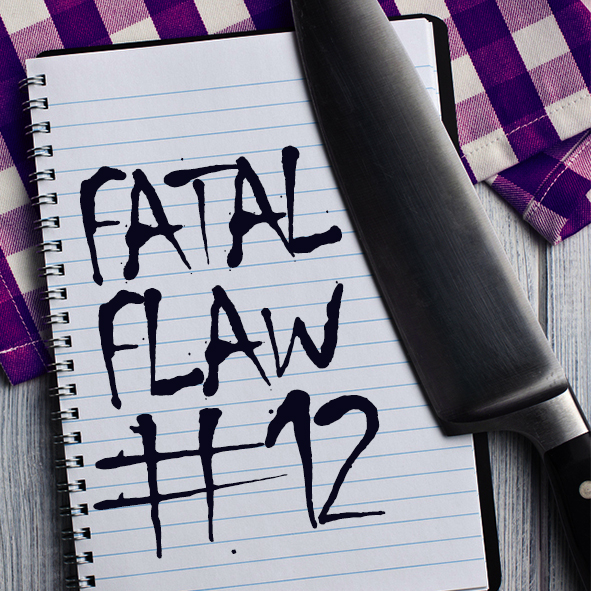

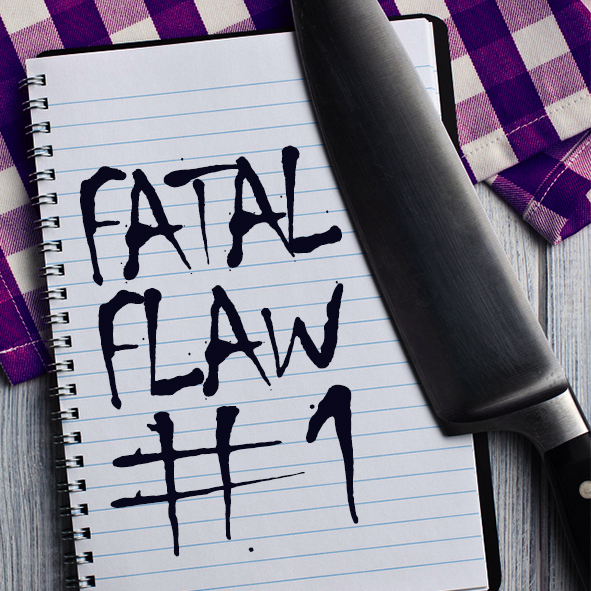
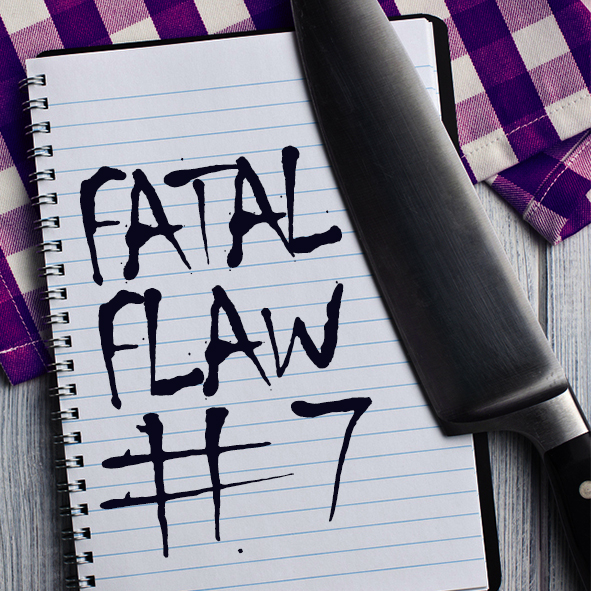
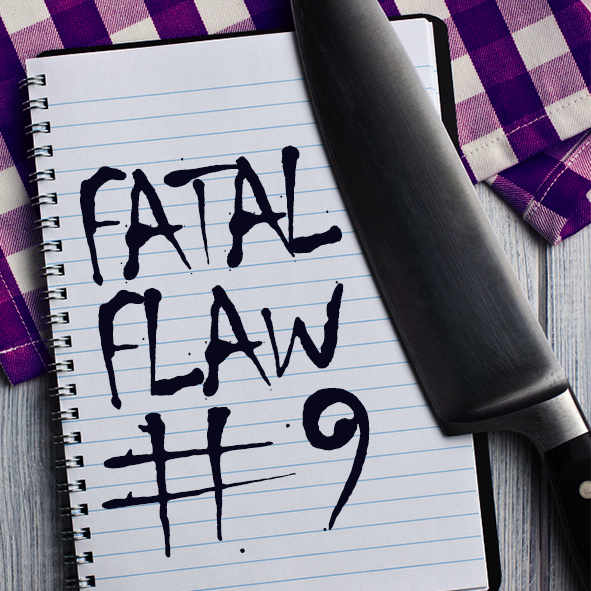
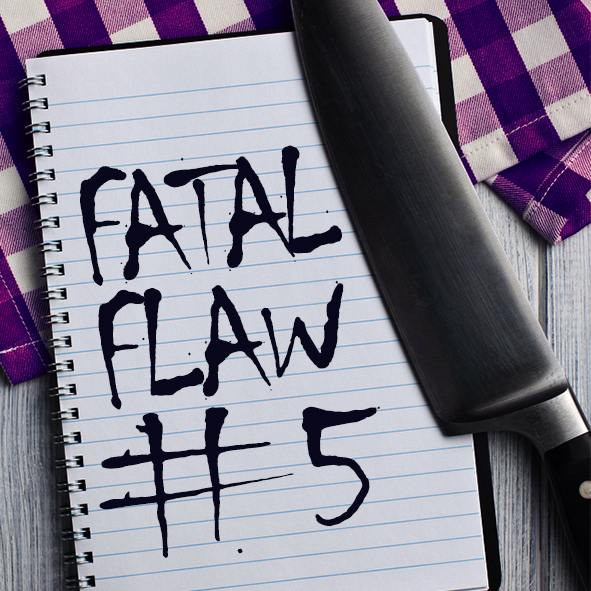
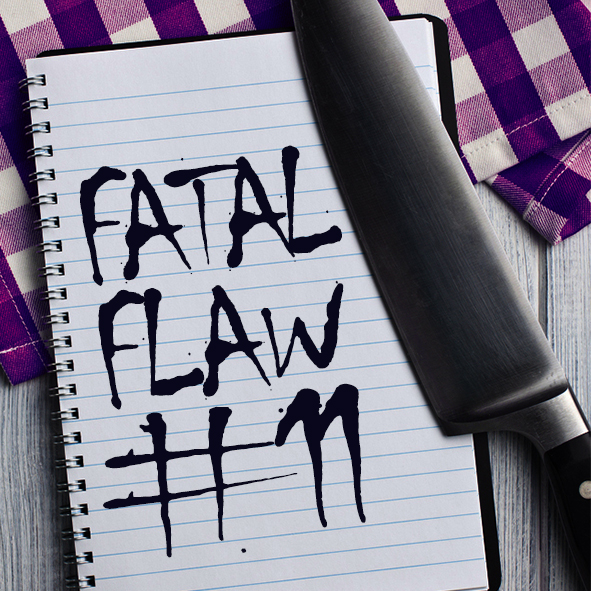




Readers don’t like big blocks of text. It’s like a wall that says “stop here.” So, white space is a good thing.
I’ve noticed as I’ve switched to reading so many ebooks that what would be a normal but longer block of text on paper is now a big block of text. Something to think about as we paragraph.
Good point about ereaders. I try to break up long paragraphs in my writing (books and blog posts). I just think it’s easier on the eyes overall. And nowadays people have little ability to focus or concentrate for long. Maybe in time every paragraph will be only one sentence lol.
Very timely post for me as I revise, and my paragraphs become shorter and shorter.
I also like Ray Bradbury’s guideline: Think of each paragraph as a separate [camera] shot in a movie.
I like that concept. Doesn’t apply always, but I think in cinematic terms, with camera shots for scene segments, so often each paragraph is a kind of attention shift.